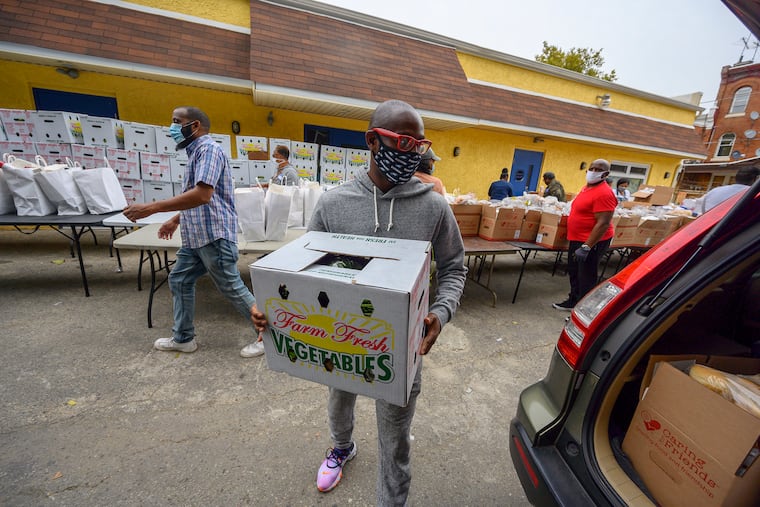Food system workers were under-served before the pandemic. It’s worse now. | Opinion
We have the opportunity now to make better food systems for everyone.

When Philly started its lockdown in March, the divide within our workforce became painfully clear in terms of one’s ability to bring home a living wage and protect yourself adequately against COVID-19. While healthcare workers showed up for their jobs around the clock, another essential group hit the front lines: community food system workers. That includes everyone from growers to retailers to those who manage food waste.
These workers regularly put themselves at risk to feed our communities. The harsh reality is that many of them had little to no choice when it came to the pandemic. On a local level, Philly has seen the food landscape change to adapt to the circumstances, thanks to the hard work of our food system workers. There has been increased reliance on takeout and delivery services; management of grocery shortages; a push for virtual nutrition and cooking education; community refrigerators where neighbors can drop off and collect food; new school efforts to provide meals to families; and increased use of SNAP benefits – just to name a few. And keep in mind all of this has happened with limited government assistance.
This year continues to be tough on everyone. But unsurprisingly, communities of color have been disproportionately impacted by COVID-19. In November, 12% of all adults in one study reported not having enough to eat that month; 20% of Black adults and 18% of Latino adults reported not having enough food for their households, compared to 9% of White adults.
» READ MORE: Half of American families say they fear a hungry holiday season
After a summer of protest refocused national attention on the Black Lives Matter movement, I encourage you to broaden your actions to achieve equity. In the context of food, this means supporting Black restaurants, local growers, and community gardens. It means supporting food assistance efforts, connecting young people who depend on you with healthy foods wherever you can, and educating yourself on where your food comes from. It means supporting the people who are doing the work in food access and need support. And it means advocating for increased assistance to communities that have health or food access disparities.
The optimist in me sees the “new normal” of the pandemic as an incredible opportunity for change. The realist recognizes these unprecedented times as a call to action and sobering reminder of the issues that existed before COVID-19 – such as students accumulating lunch debt, produce growing concerns related to climate change and its impact on agriculture, plus unlivable wages and atrocious working conditions for workers in food service and agriculture who have proven time and again they deserve more than “minimum” wages.
No matter your connection to the food system, you have a relationship with the food produced from it. Take a moment to reflect and consider how you can interact with community food systems. If you need help, check your eligibility for SNAP. If you want to donate to local pantries or soup kitchens, see if organizations prefer money, specific foods, or other contributions. Tip well on food deliveries and stay home when possible to support worker safety. Check out studies on the Philadelphia region’s food systems and advocacy venues where you can help, like via the Coalition Against Hunger.
» READ MORE: At holiday time, donations to many food charities aren’t keeping up with pandemic-fueled need
There is no doubt that individuals desperately need further economic assistance from the government to stem the crisis of hunger. But our challenge is to think bigger than that — to view long-term food security as an attainable goal, beyond the availability of food pantries and charitable donations, and to build a stronger, more sustainable system so that our social safety net doesn’t collapse again.
People will always need to eat, and food workers will always be essential. But there can be a future where people aren’t chronically hungry, nor asked to choose between risking their health and making ends meet. We have to stop leaving so much work on the shoulders of the people who feed us. It’s time to embrace the radical notion that things can get better from here, if we do this work as a community.
Katey McElrath works for Agatston Urban Nutrition Initiative, which serves West Philly through nutrition and cooking education and a community-shared agriculture program. She recently graduated with her Master of Social Work and has worked in community food access in Philadelphia and in Appalachia.